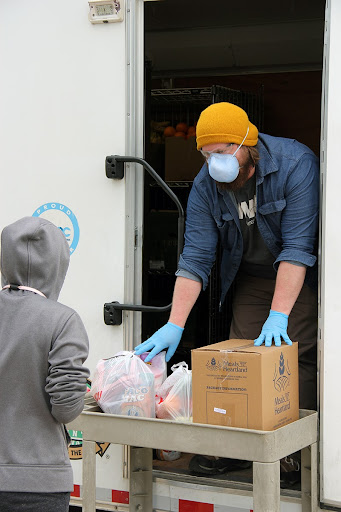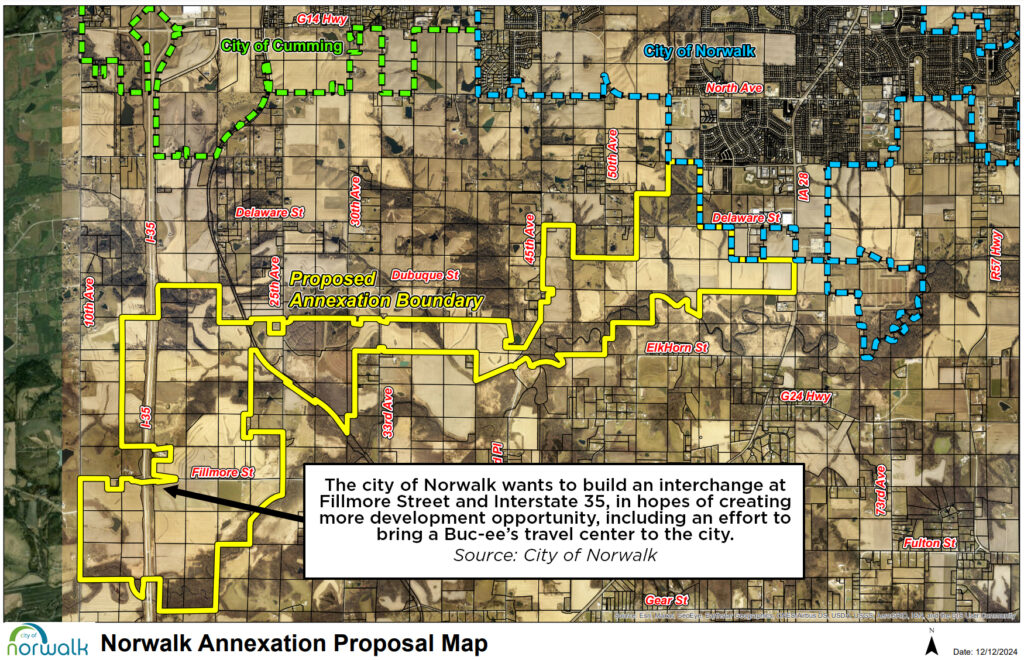New report highlights nonprofit sector’s response to pandemic


A report released Wednesday by the Community Foundation of Greater Des Moines brings that response into clearer focus by highlighting the work of the nonprofit sector, and how nearly $1 million in investments from the Disaster Recovery Fund helped support nonprofits’ work in three areas: safety net services, unmet needs, and long-term recovery and rebuilding strategies.
The report, called “A Caring, Connected Community,” identifies areas of response, whether that be through food distribution to fight food insecurity, rental assistance to help people avoid eviction, volunteers training diverse communities about the COVID-19 vaccine, or helping meet students’ needs when school went virtual, among other work that was done.
Angela Dethlefs-Trettin, chief community impact officer at the foundation, said the report demonstrates the compassion, hard work, innovation and collaboration of the nonprofit sector, which was at the forefront of the community’s response to the pandemic.
“So many funders were willing to dare greatly and take bold action during this time to ensure our nonprofits could respond to people’s needs,” she said.
The Disaster Recovery Fund was created to help donors address immediate and long-term needs that could arise from a disaster. Those conversations began following the flash-flooding of 2018, and the fund was activated for the first time at the onset of the pandemic. A COVID-19 grantmaking committee of five leaders from the philanthropic community was created to guide the process and distribute grants from the fund.
So far, $1.15 million has been donated to the fund. Of that, more than $937,000 in grants has been awarded to 17 organizations through September 2021.
The fund is designed to continue to collect donations to help respond to future disasters beyond the pandemic, Dethlefs-Trettin said.
The committee worked closely with local nonprofits and other emergency management initiatives to understand the critical needs in the community, and to provide resources where they are needed most, and to supplement, not replace, existing resources and services provided by nonprofits and local, state and federal agencies.
Dethlefs-Trettin was joined on the grantmaking committee by Sarah Boese, communications director for the Polk County Board of Supervisors, Renee Miller from the United Way of Central Iowa, Kris Schechinger-Camper of Nationwide Foundation, and Suzanne Mineck of the Mid-Iowa Health Foundation.
“We all weathered tremendous stress and challenges during this time, but some people in our community suffered much greater consequences,” Mineck said. “And yet we witnessed over and over the ways in which our community leaned into relationships, honored the resilience of our residents, and worked resourcefully and tirelessly to meet people’s needs.”
Other findings in the 24-page report include more than 183,000 calls and texts to the United Way of Central Iowa’s 211 help line in 2020; 3,000 calls in 10 languages and 25 dialects were received through EMBARC’s help line and virtual access center from March through September 2020; 2.1 million pounds of food were distributed through the Food Bank of Iowa in October 2020, a new record; and $40 million in rental assistance was distributed through several programs in Polk County from March to October 2020.
The report also gives examples of innovation that occurred during the pandemic. Those included the opening of a community center by Al Exito to help Latino individuals get access to information and assistance, and a pilot program by Proteus Inc. that helped provide primary health care services in meat processing plants.
Dethlefs-Trettin said the report shows not only the work that was done, but the innovation and collaboration that occurred to make that work possible.
“I think one of the things that really came to light is the opportunity that our community had to really seize a moment of authentic collaboration,” she said. “Even more than specific areas of impact, I think what we were able to see happen in our community is we were able to reimagine service delivery and outreach, and transformed the moment that I truly believe will set us up for a new normal of how we’re going to serve Central Iowa.”
Dethlefs-Trettin said innovation and ingenuity have been part of the nonprofit sector for a long time, but that the pandemic only elevated that work.
“The opportunity to execute on that in the midst of a pandemic only reminded us how important the sector is, how innovative they are and how focused on service they are,” she said.
While the report highlights all the ways the nonprofit sector came together to collaborate and innovate to meet people’s needs, it also identifies some ongoing challenges.
According to the report, the challenges that persist include racism, discrimination and systemic barriers that continue to exist and create disparities for people of color; the continued rise of visits to area food pantries; eviction cases that now make up one-half of the caseload at Iowa Legal Aid; students falling behind after long periods of remote learning; nonprofits operating over capacity; and Latino families remaining hidden because of immigration policies and fear of violence and deportation.
Dethlefs-Trettin said the report not only demonstrates the lessons learned over the past 18 months, but also elevates the need to do better.
“I hope what this does is help our entire community understand the value of our nonprofit sector,” she said. “Our nonprofits were active daily. Our nonprofits were innovative constantly. Our nonprofits were stretched thin in so many ways. Our nonprofits are employers and critical drivers of our communities. Throughout this pandemic we really saw how critical … the nonprofit sector is to this region, and I hope this report helps illustrate the many, many ways the nonprofit sector was there and carried our community to make sure we continue to be a thriving place to be.”
Photo above: A Des Moines Area Religious Council volunteer distributes food from one of the organization’s mobile food pantries in April 2020 at River Woods Elementary School in Des Moines. Photo submitted by DMARC










